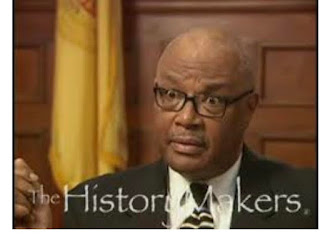What is Gatekeeping?
- Is Gatekeeping useful or harmful?
- Are exclusionary practices ever called for?
-What things should or should not be "gate kept?"
The Honorable Kenneth E. Reeves (The HistoryMakers A2006.065), interviewed by Robert Hayden, April 6, 2006, The HistoryMakers Digital Archive. Session 1, tape 3, story 10, The Honorable Kenneth E. Reeves talks about his sexual identity as a gay man
You Have Been READ Library source 1
“I’m a mess
That don’t rhyme with shit
It’s just true”
- “L.E.S.” Childish Gambino
15 Times I choked on my own silence with the suffocating hands of my coping mechanisms
1. The last skinny boy I allowed to take solace in me
Clears his throat
morphs his voice into the best Prince Charming and
Says
“You’re not that big”
I mean
It shouldn’t be too hard for you to lose those damn pesky pounds”
That night
I won a slam with a love poem dedicated to my thighs I believed no lines of
2. I wrote this poem while researching the cost of fat transplant cursing myself for all the money I could have saved instead of spending it on food I am staring at my pictures from middle school
wishing for the weight I had in seventh grade
Pissed off that I was just as insecure back then
That I took that nearly flat stomach for granted
I can’t even look at my old pictures without getting the urge to not eat for days
3. When people call me beautiful I laugh and swallow my denial like a good meal
My sadness has a funny way of making everyone I love into a gun
Every word they say a trigger
Everyday harder to dodge bullets and compliments in the same breath
4. Sometimes I want to cry
And not feel like I have to write a fucking poem about it
5. I think my poems get tired of me too
6. My depression becomes the room that swallows the elephant
Makes my bed feel coffin when the poems ain't enough
And I want to forget what morning looks like
7. My asylum is in the arms of a girl who held me like a promise she would not keep
Who tap dances with my antidepressants everytime I answer her calls
When I read my poem about her to my parents
I changed her pronouns
I love this body with question marks and negligence
Protect my comfort zone enough to sacrifice my healing
8. I learn this as queer
As black
As woman
As sex
As love
As my heart
A thing to be broken before knowing it could be whole
9. There are people who become indigenous to my body before I could
And this is the story of how I learned to like girls
And boys
And everything but myself
10. I was interrogated out my closet by the bullies in my middle school math class
Just to find no space in the room to claim as my own
11. I am constantly seeking to be enough I consume air for breakfast
Binge at lunch
Cuss myself out by dinner
Consume nothing the next day
Binge at 4 am
Suck in my stomach until I get back home in the afternoon
Try not to throw up
Try not to breathe
I am never satisfied with the results
My stomach feels like a bottomless pit one day and a graveyard the next
12. This body is waiting to be woken up to
Without judgement or apology about what it is and who it belongs to
13. I Want the elephant to stop feeling like the elephant in the room I want my room to just be my room
For my tears to be my tears
For my poems to belong to me
14. I want to belong to someone
15. I want to belong to myself again





















